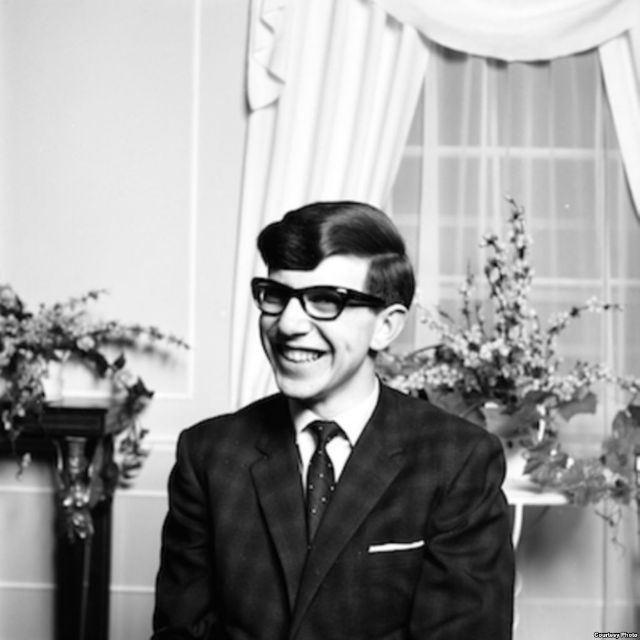Stephen Hawking, renowned for his groundbreaking contributions to theoretical physics and cosmology, was not always the global icon we know today. In fact, it is fascinating to explore the formative years of this brilliant mind, particularly during his youth. From his early years of curiosity and exploration to the challenges he faced with a debilitating disease, Stephen Hawking’s youth was filled with both promise and perseverance. As we delve into the experiences that shaped him, it becomes clear that his journey was not just about overcoming obstacles but also about harnessing his intellectual prowess to inspire future generations. This article will provide insights into Stephen Hawking's young life, his education, and the events that contributed to his remarkable achievements.
The world first became aware of Stephen Hawking’s brilliance during his time at the University of Cambridge, where he pursued his studies in physics. However, his journey began long before that, rooted in a childhood filled with curiosity about the universe and a thirst for knowledge. Despite being diagnosed with a rare form of motor neuron disease at the age of 21, which left him almost completely paralyzed, Hawking's young years were marked by an unyielding spirit and a passion for understanding the mysteries of the cosmos. His story serves as a testament to the power of determination and intellect against all odds.
As we explore the life of Stephen Hawking young, we will also reflect on how his experiences shaped his theories on black holes, the nature of time, and the universe itself. His youthful inquisitiveness, combined with his relentless pursuit of knowledge, paved the way for his groundbreaking work in theoretical physics, making him one of the most influential scientists of our time.
What Was Stephen Hawking's Early Life Like?
Stephen Hawking was born on January 8, 1942, in Oxford, England. He grew up in a family that valued education and intellectual pursuits. His father, Frank Hawking, was a medical researcher, and his mother, Isobel, was a political activist. Stephen was the oldest of four siblings and showed an early aptitude for science and mathematics.
Stephen Hawking Young: Education and Academic Journey
Hawking attended St. Albans School, where he excelled academically, particularly in mathematics and physics. His insatiable curiosity and determination led him to the University of Oxford, where he studied physics. He graduated with a first-class honors degree in 1962. Despite his diagnosis of ALS during his time at Cambridge, Hawking continued to pursue his academic interests with unparalleled dedication.
What Challenges Did Stephen Hawking Face in His Early Years?
Stephen Hawking faced significant challenges during his youth, particularly after being diagnosed with amyotrophic lateral sclerosis (ALS). Initially, the prognosis was grim, with doctors estimating he had only a few years to live. However, Hawking's resilience and refusal to be defined by his condition became a defining aspect of his character. He adapted to his physical limitations, developing innovative communication methods and continuing to engage in groundbreaking research.
How Did Stephen Hawking's Youth Influence His Theories?
Hawking's early experiences played a crucial role in shaping his theories on black holes and the nature of the universe. His fascination with the cosmos began as a child, and this curiosity continued to drive his research throughout his life. His youth was marked by a desire to understand complex scientific concepts, which ultimately led to his development of the Hawking radiation theory.
What Legacy Did Stephen Hawking Leave Behind?
Stephen Hawking's legacy is profound and far-reaching. His work not only revolutionized our understanding of black holes but also inspired countless individuals to pursue careers in science and mathematics. He became a symbol of resilience, showing that physical limitations do not have to hinder intellectual achievement. His best-selling book, "A Brief History of Time," brought complex scientific ideas to the general public, further solidifying his impact on the world.
How Can We Learn from Stephen Hawking's Young Years?
- Embrace curiosity: Hawking's desire to learn and explore is a reminder to cultivate our natural curiosity at any age.
- Overcome obstacles: Stephen's journey teaches us that perseverance can lead to extraordinary achievements, regardless of the challenges we face.
- Value education: Hawking's academic success underscores the importance of education in shaping our futures and contributing to the world.
- Inspire others: By sharing our knowledge and experiences, we can motivate and uplift those around us, just as Hawking did.
What Can We Conclude About Stephen Hawking Young?
In conclusion, Stephen Hawking's youth was a blend of curiosity, intellect, and resilience. His early life experiences laid the foundation for his groundbreaking work in theoretical physics and cosmology. By understanding his journey, we not only celebrate the life of an extraordinary scientist but also draw inspiration from his unwavering spirit. The story of Stephen Hawking young is a powerful reminder of how passion and determination can lead to remarkable achievements, even in the face of adversity.
Understanding Ralph Macchio Disease: A Journey Through Health Challenges
Exploring The Riley Green And Ella Langley Relationship
Mozzy's Wife: Unveiling The Name Behind The Rapper's Heart


